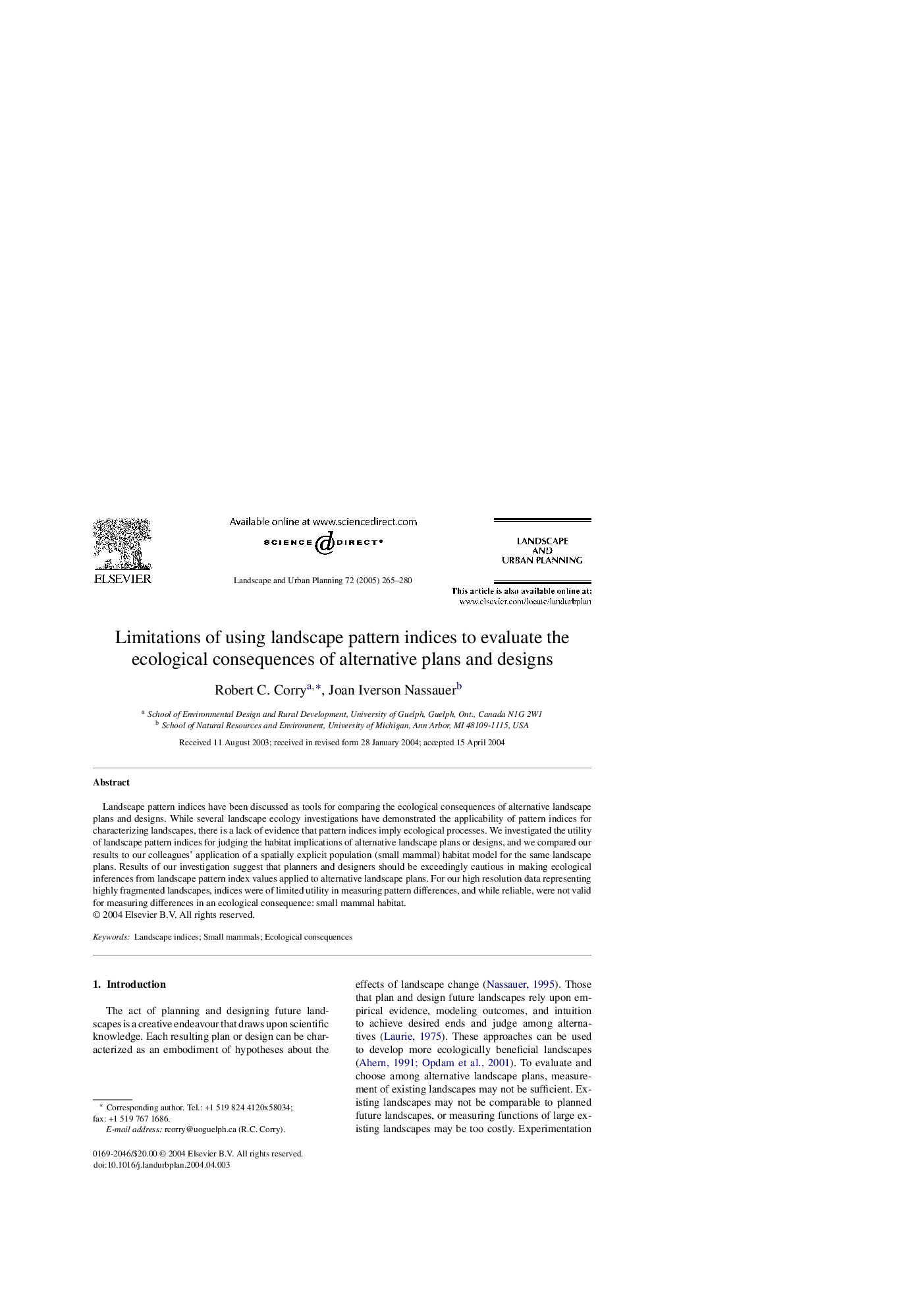| Article ID | Journal | Published Year | Pages | File Type |
|---|---|---|---|---|
| 10503304 | Landscape and Urban Planning | 2005 | 16 Pages |
Abstract
Landscape pattern indices have been discussed as tools for comparing the ecological consequences of alternative landscape plans and designs. While several landscape ecology investigations have demonstrated the applicability of pattern indices for characterizing landscapes, there is a lack of evidence that pattern indices imply ecological processes. We investigated the utility of landscape pattern indices for judging the habitat implications of alternative landscape plans or designs, and we compared our results to our colleagues' application of a spatially explicit population (small mammal) habitat model for the same landscape plans. Results of our investigation suggest that planners and designers should be exceedingly cautious in making ecological inferences from landscape pattern index values applied to alternative landscape plans. For our high resolution data representing highly fragmented landscapes, indices were of limited utility in measuring pattern differences, and while reliable, were not valid for measuring differences in an ecological consequence: small mammal habitat.
Related Topics
Life Sciences
Agricultural and Biological Sciences
Ecology, Evolution, Behavior and Systematics
Authors
Robert C. Corry, Joan Iverson Nassauer,
